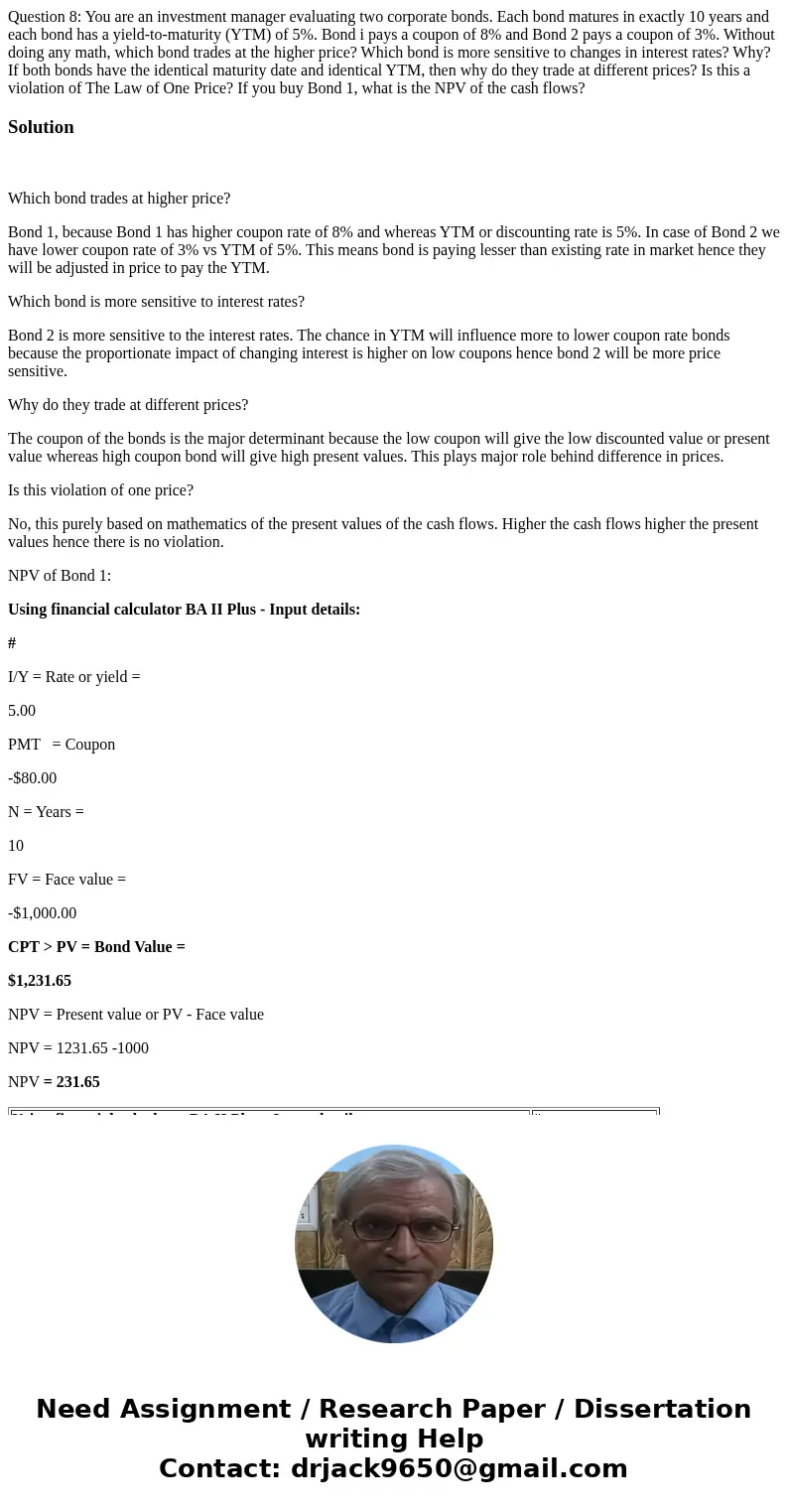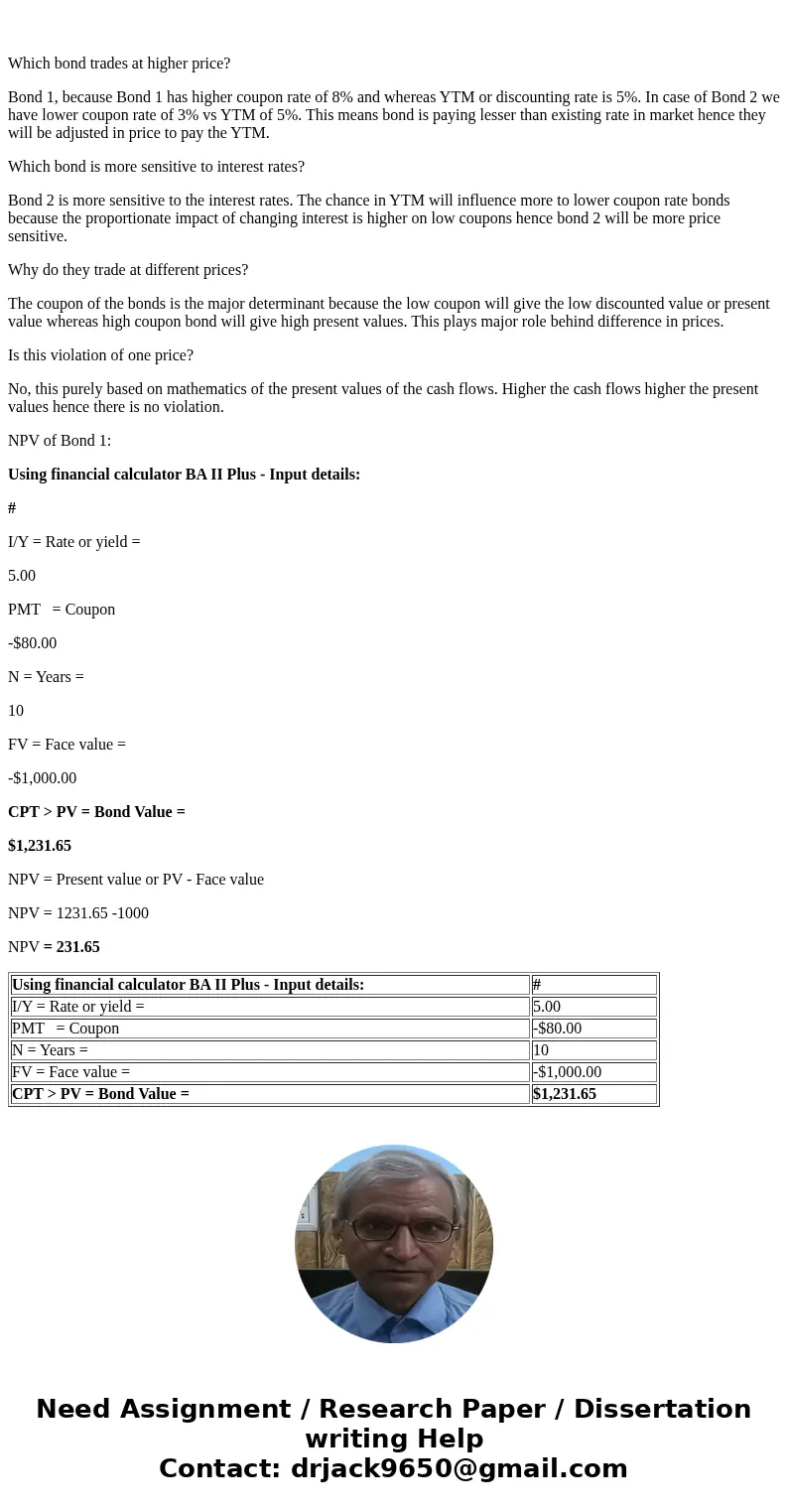Question 8 You are an investment manager evaluating two corp
Solution
Which bond trades at higher price?
Bond 1, because Bond 1 has higher coupon rate of 8% and whereas YTM or discounting rate is 5%. In case of Bond 2 we have lower coupon rate of 3% vs YTM of 5%. This means bond is paying lesser than existing rate in market hence they will be adjusted in price to pay the YTM.
Which bond is more sensitive to interest rates?
Bond 2 is more sensitive to the interest rates. The chance in YTM will influence more to lower coupon rate bonds because the proportionate impact of changing interest is higher on low coupons hence bond 2 will be more price sensitive.
Why do they trade at different prices?
The coupon of the bonds is the major determinant because the low coupon will give the low discounted value or present value whereas high coupon bond will give high present values. This plays major role behind difference in prices.
Is this violation of one price?
No, this purely based on mathematics of the present values of the cash flows. Higher the cash flows higher the present values hence there is no violation.
NPV of Bond 1:
Using financial calculator BA II Plus - Input details:
#
I/Y = Rate or yield =
5.00
PMT = Coupon
-$80.00
N = Years =
10
FV = Face value =
-$1,000.00
CPT > PV = Bond Value =
$1,231.65
NPV = Present value or PV - Face value
NPV = 1231.65 -1000
NPV = 231.65
| Using financial calculator BA II Plus - Input details: | # |
| I/Y = Rate or yield = | 5.00 |
| PMT = Coupon | -$80.00 |
| N = Years = | 10 |
| FV = Face value = | -$1,000.00 |
| CPT > PV = Bond Value = | $1,231.65 |


 Homework Sourse
Homework Sourse